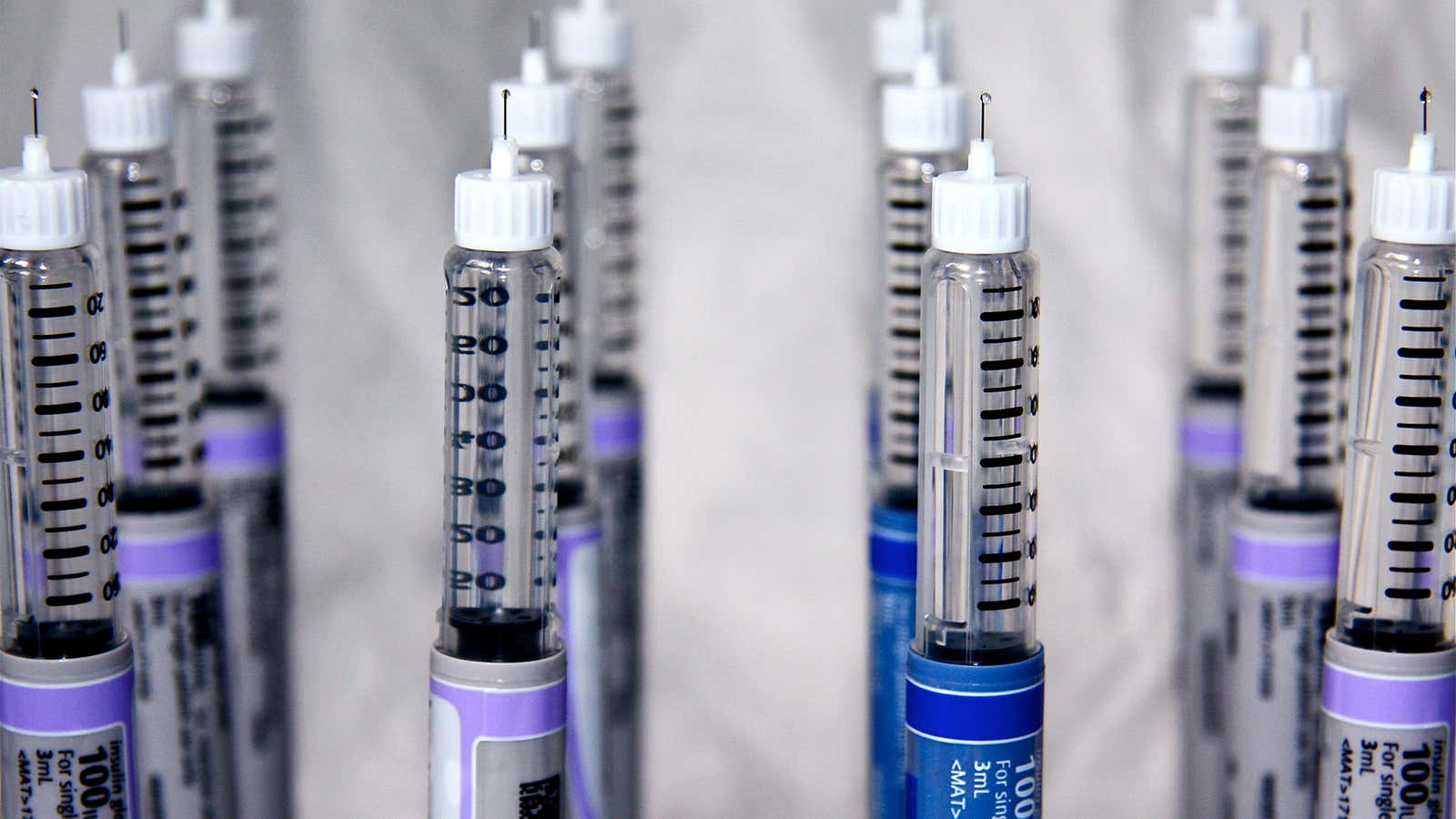As a growing middle class worldwide consumes more sugar, meat, soda, and other processed foods, the number of people suffering from the obesity-related disease type-2 diabetes has quadrupled in the last 40 years, to some 400 million people worldwide.
The disease, in which the body doesn’t produce or process insulin properly, has been considered chronic and incurable, a condition that only gets worse with age—so efforts have focused on prevention. But new research suggests that, for some people already diagnosed with diabetes, following an extreme diet could reverse the disease.
Researchers at Newcastle University created an extreme diet plan for a small trial involving 30 type-2 diabetes patients. For eight weeks, the patients drank a diet milkshake three times daily and ate some 200 grams of non-starchy vegetables, totaling about 700 calories a day.
At the end of the regimen, the average weight loss among participants was about 14 kg (33 pounds). And in many of them, the diabetes disappeared. Nearly half the participants had no symptoms of diabetes for nearly six months after they went back to eating normally. The results of the study were published in Diabetes Care.
Reversal of diabetes has been studied in those undergoing bariatric surgery, where reduction in the size of the stomach reduces patients’ ability to eat large quantities and often results in major weight loss. But this is the first study where the reversal has lasted for as long as six months.
It is worth noting that most of those who experienced reversal of symptoms had had diabetes for less than four years. They were also, in general, healthier than those who didn’t experience reversal of symptoms while on the extreme diet.
We still don’t understand why such reversal is possible. A leading hypothesis is that, following weight loss, removal of excess fat from the liver and pancreas can kickstart insulin-producing cells to normalize sugar levels.
Though the study hints at a cure, larger and longer-term trials are necessary to understand the method’s effectiveness. Still, patients who underwent the trial say they are happy they did it. Four years after the trial, at least one of those patients, Richard Doughty, still has no symptoms of diabetes. He eats about 1700 calories per day, but follows a strict exercise regime to lose many of those calories.
The diet is tough, but not impossible. “I’ve learned to enjoy my shift in lifestyle, and I like a whole range of food I didn’t know about before,” Doughty writes in the Guardian.
For those who can’t stick to such a diet in the long term, experts suggest that even a temporary reversal of symptoms can be beneficial, reducing the risks of diabetes-associated complications, such as kidney damage, loss of vision, heart attacks, and stroke.
